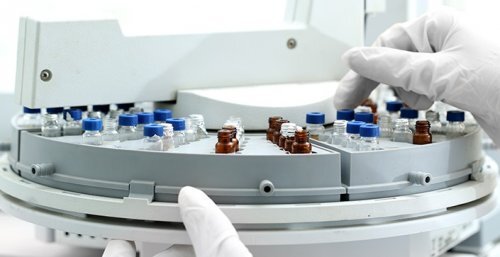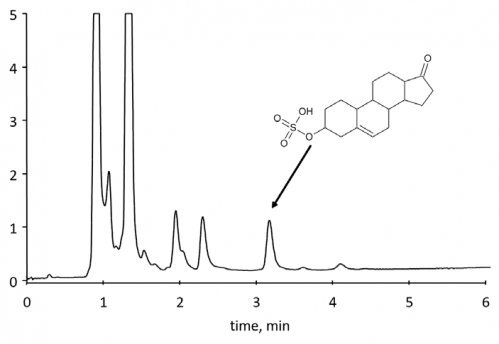Transformed response potentiometric titrations
The University of Antwerp has developed a new sensing technique to characterize the interactions between nano- or microparticles and/or (bio)molecules, based on potentiometric titration. The technique can be used to determine affinity constants in bio-molecular, colloidal, pharmaceutical, and many other applications.

Situation before
The Antwerp X-ray analysis, Electrochemistry and Speciation Group (AXES) of prof. K. De Wael in collaboration with the Human Molecular Genetics Group of prof. G. Van Camp and em. Prof. L. Nagels developed a new sensing technique to characterize the interactions between particles, based on a new form of potentiometric device with a simple concentration-related output signal. It can determine association constants (Ka, or it’s inverse, Kd) via a miniaturized, simple and rapid titrant addition method. The “particles” can be small molecules or large biomolecules, as well as nano- or microparticles. Ka (or Kd) values for any combination there of can be determined. A simple concentration related output of these sensors instead allows them to be used in separation methods (CE, UHPLC..), in sensorgram-based Ka determinations or titration-based Ka determinations, and in dissolution.
Technology
Many label free methods exist to acquire quantitative information on the interaction and affinity between two different molecules or particles albeit from biological or chemical nature. Surface plasmon resonance (SPR) differential scanning calorimetry (DSC) and evanescence wave sensors are only a few examples. All of them require sophisticated and expensive instruments and expert data interpretation. Applications originate from various science fields, e.g. diagnostics and (bio)sensors, fields where both the determination of the concentration of an analyte or its affinity characteristics towards another molecule or particle are typically of interest.

About the researchers
Since 2011, Prof. Karolien De Wael, head of the AXES research group, became appointed as tenure track assistant professor at the Department of Chemistry, University of Antwerp, in 2018 she was promoted to full professor with a research focus. Her main research interests are related to fundamental, methodological and application-oriented research involving a wide range of electrochemical analytical techniques.Guy Van Camp is full professor at the University of Antwerp and the head of the Human Molecular Genetics laboratory at the department of Biomedical Sciences. The lab comprises approximately 10 researchers and currently, the main focus of the research is the development of cancer biomarkers for use in liquid biopsies in several tumor types.Luc Nagels is emeritus professor, and his former research group had a firm international reputation in potentiometry. He was an invited speaker on international conferences, as well as guest professor on electrochemical methods in several foreign universities. He advocated potentiometric sensors using the recently widely accepted phase boundary model. This model now allows design of modern potentiometric biosensors.
More information
University of Antwerp
Valorisation Office
Middelheimlaan 1
2020 Antwerpen - Belgium
T +32 3 265 88 69